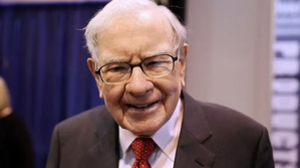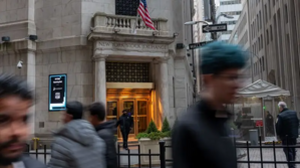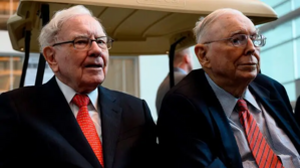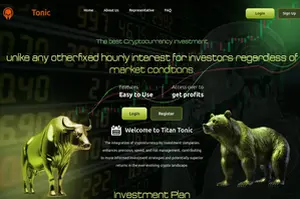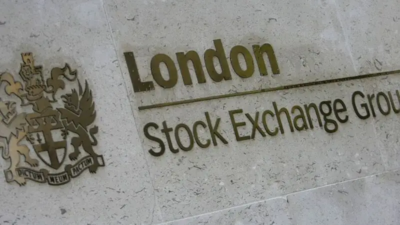Wall Street wants answers from big banks about the economy
A version of this story first appeared in CNN Business’ Before the Bell newsletter. Not a subscriber? You can sign up right here. You can listen to an audio version of the newsletter by clicking the same link.
Big banks kick off earnings season Friday. There’s a lot riding on the line.
Investors are on edge this week after the latest Consumer Price Index released Wednesday showed that inflation grew faster than expected in March. The S&P 500 index has fallen 0.8% this week, the Dow Jones Industrial Average has declined 1.1% and the Nasdaq Composite has lost 0.5%.
That has turned up the pressure for corporations to make a strong showing this upcoming earnings season, which investors already hoped could help revive the sputtering stock rally.
“Earnings season just became significantly more important,” said JJ Kinahan, chief executive of IG North America, in a Wednesday note. “The market has more or less acknowledged that any stimulus from a rate cut [is] becoming less likely. As a result, that’s shifting the onus for not just further market gains, but sustaining existing gains, on earnings.”
JPMorgan Chase, an economic bellwether due to its staggering size, reports first-quarter results Friday morning. BlackRock, Citigroup, Wells Fargo and PNC Financial Services also report quarterly updates.
Investors will watch closely for signs that Americans are continuing to open their pocketbooks despite interest rates hovering at a 23-year high. Consumer spending has stayed robust at large, but retailers have warned in recent months that lower-income consumers are tightening their purse strings. Surging gas prices are also taking a bite out of Americans’ income.
“You’ll be wanting to look at, are there early signs of stress on the consumer that banks are reporting?” said Carol Schleif, chief Investment officer at BMO Family Office.
Persistent inflation and the economy’s unflinching resilience have forced Wall Street to pare back its expectations for when and how many times the Federal Reserve will cut rates this year. Wall Street expected as many as six rate cuts earlier this year. Now, some investors say that the Fed could cut rates just once or twice in 2024, rather than the three projected, or keep them on hold through year’s end. Some economists even believe another hike could be warranted.
Traders see a roughly 19% expectation that the Fed will cut rates in June after the latest inflation data, according to the CME FedWatch Tool. That’s down from a 56% expectation a day ago.
Elevated rates are a double-edged sword for banks. On one hand, lofty rates could help pad banks’ net interest income, since they can charge a higher borrowing rate for loans and mortgages. But that could also add stress to the financial sector and in turn destabilize the economy. The collapse of several regional banks roiled the stock and bond markets last March as investors feared that sky-high rates could help trigger a recession.
Fears of a downturn have abated in recent months as economic data has remained robust. But JPMorgan CEO Jamie Dimon believes that a recession still isn’t off the table. He wrote in his annual letter to shareholders published Monday that the bank is prepared for a range of scenarios, including rates topping 8% and stagflation, or when the economy downturns while inflation remains high.
“Markets seem to be pricing in at a 70% to 80% chance of a soft landing,” wrote Dimon. “I believe the odds are a lot lower than that.”
Stubbornly high US inflation grew stronger than expected in March
Surging gas prices and sky-high mortgages and rent sent inflation rising more than expected in March, adding to Americans’ prolonged and painful battle with high costs. That could force the Federal Reserve to keep its punishing rates higher for longer, reports my colleague Alicia Wallace.
US consumer prices picked up again last month, vaulting to a 3.5% increase for the 12 months ended in March, according to the latest Consumer Price Index data released Wednesday by the Bureau of Labor Statistics.
That’s up considerably from February’s 3.2% rate and marks the highest annual gain in the past six months. Friday’s report further highlights that the path to lower inflation remains extremely bumpy — and continues to be a drag on Americans’ hard-earned finances — and that any loosening of monetary policy might not happen soon.
President Joe Biden acknowledged Wednesday there is “more to do” to bring down inflation.
“Today’s report shows inflation has fallen more than 60% from its peak, but we have more to do to lower costs for hardworking families. Prices are still too high for housing and groceries, even as prices for key household items like milk and eggs are lower than a year ago,” Biden said in a statement.
Inflation has been a bane on Biden’s presidency, with voters consistently giving him low marks for his handling of the economy.
Read more here.
Some Fed officials worry about inflation’s path
Federal Reserve officials said during their March policymaking meeting that inflation will likely continue to slow this year, according to minutes released Wednesday, but some still fretted over the possibility that inflation could remain stubbornly high.
Those fears have now worsened, at least on Wall Street, which means that interest rates could remain higher for longer if prices don’t budge, reports my colleague Bryan Mena.
While Fed officials “observed that significant progress had been made over the past year” despite disappointing inflation readings for January and February, some also “noted that the recent increases in inflation had been relatively broad based,” the minutes said.
The Fed kept its key interest rate at a two-decade high for the fifth straight meeting last month, at a range of 5.25% to 5.5%. Fed Chair Jerome Powell has said that policymakers want to see more evidence that inflation is headed toward their 2% goal.
According to the Fed minutes, officials generally noted that “they continued to expect that inflation would return to 2 percent over the medium term.” Economists have been expecting slowing rent growth to filter through to inflation gauges. Powell said it is only a matter of time until it happens, but that hasn’t happened yet. Insurance costs have also been pushing up inflation.
Read more here.
Maybe You Like
London Stock Exchange urged to do more to hold onto retail traders
The UK stock market needs to improve investor communication and engagement in order to retain its individual traders, according to a report from online trade and investor provider CMC Markets. ADVERTISEMENTUK retail investors are increasingly...
Hargreaves Lansdown rejects private equity takeover bid
The UK investment platform says the offer from a group including the Abu Dhabi Investment Authority undervalues the firm. ADVERTISEMENTHargreaves Lansdown has rebuffed a takeover proposal worth £4.67 billion (€5.48 billion) made...
Ferrovial set to offload UK regional airports amid Heathrow deal uncertainty
Ferrovial is planning to sell its stake in three UK regional airports amid difficulties in finalising its £2.4bn sale of a 25% stake in Heathrow. ADVERTISEMENTSpanish infrastructure company Ferrovial is reportedly putting up for sale...





